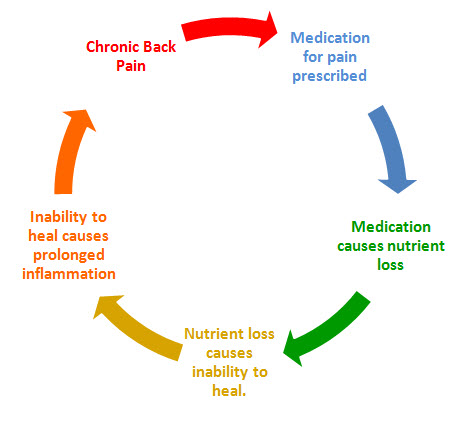 About 60 percent of Americans are overweight or obese, and their health-care costs are higher: $1500 more per year than a normal weight person. Much of the difference is contributed to obesity related disease like type 2 diabetes, heart disease, metabolic syndrome, and other conditions.
About 60 percent of Americans are overweight or obese, and their health-care costs are higher: $1500 more per year than a normal weight person. Much of the difference is contributed to obesity related disease like type 2 diabetes, heart disease, metabolic syndrome, and other conditions.
Recently, scientists in Japan found that low levels of certain compounds, such as bisphenol A – BPA for short, (the building block of plastics, including that in baby bottles), had surprising effects on fibroblast cells. These cells typically help form connective tissue, muscle, ligaments, bones, etc. Exposure to BPA and other chemical compounds caused the cells to turn into adipocytes (AKA – fat cells). The chemicals also stimulated the growth of existing fat cells.
Another study performed in 2006 by scientist, Bruce Blumberg of the University of California reported similar results using different chemicals. In 2006 he fed pregnant mice tributyltin, a disinfectant and fungicide used in marine paints, plastics production, and other products, which enters the food chain in seafood and drinking water.
“The offspring were born with more fat already stored, more fat cells, and became 5 to 20 percent fatter by adulthood.”
Genetic tests revealed how that had happened. The tributyltin activated a receptor called PPAR gamma, which turns fibroblast cells into fat cells. **It should be noted that medications given for diabetes control (Actos and Avandia) activate PPAR gamma and contribute to obesity. Ironic considering the fact that obesity exacerbates diabetes. The effect of these chemicals on obesity was so strong and so reliable that scientists created a new term for them – obesogens.
Additional testing showed that tributyltin is not the only obesogen that acts on the PPAR pathway, leading to more fat cells. Phthalates (used to make vinyl plastics, such as those used in shower curtains and, until the 1990s, plastic food wrap), bisphenol A, and perfluoroalkyl compounds (used in stain repellents and nonstick cooking surfaces) also contribute to this problem.
Think Soy is Healthy? Think Again –
On the same note, scientists started to investigate genistein, an estrogen like compound found in soy, at doses like those in soy milk and soy formula. By the age of 3 or 4 months, test subjects had higher stores of fat and a noticeable increase in body weight, suggesting that the compound threw a wrench in the workings of the body’s metabolic rate.
Eating at the Wrong Time = Weight Gain
A Study in the Journal of Obesity reported that feeding test subjects during normal sleeping hours led to twice as much weight gain as feeding the same amount of calories to test subjects during normal waking hours. The author of the study suspects that one possible cause of the difference is the disruption in the circadian rhythms( hormone patterns that regulate our sleep wake cycle). Genes that govern our daily cycle of sleeping and waking
“also regulate at least 10 percent of the other genes in our cells, including metabolic genes… Mess up the cellular clock and you may mess up metabolic rate.”
Source: Go Here…
Relying on Calorie Counting Doesn’t Always Work –
We have to take a pro-active role in protecting ourselves from an environment that is not conducive to the good health of our genes…Watch the video below for the full commentary:
- Filter your water – the right filter will pull these obesogen chemicals out of your drinking and bathing water.
- Filter Your Air – industrialization has led to 1,000’s of these estrogen based chemicals in your environment. Filtering your household air will reduce your overall exposure.
- Stop the excessive soy intake (especially milks, bars, proteins, genetically modified versions, and other processed forms).
- Maintain a normal sleep pattern (go to bed when it gets dark – wake up at sunrise). Modern technology (TV’s, lights, computers) has led many to lead a more nocturnal based lifestyle. This shift in sleep disrupts a number of hormones and ultimately degrades your health.
- If you still have trouble with weight loss after implementing the above practices, find a doctor who practices functional medicine. Make sure that the doctor you choose practices what they preach – i.e. obese doctors are not advisable.
In good health,
Dr. Osborne











